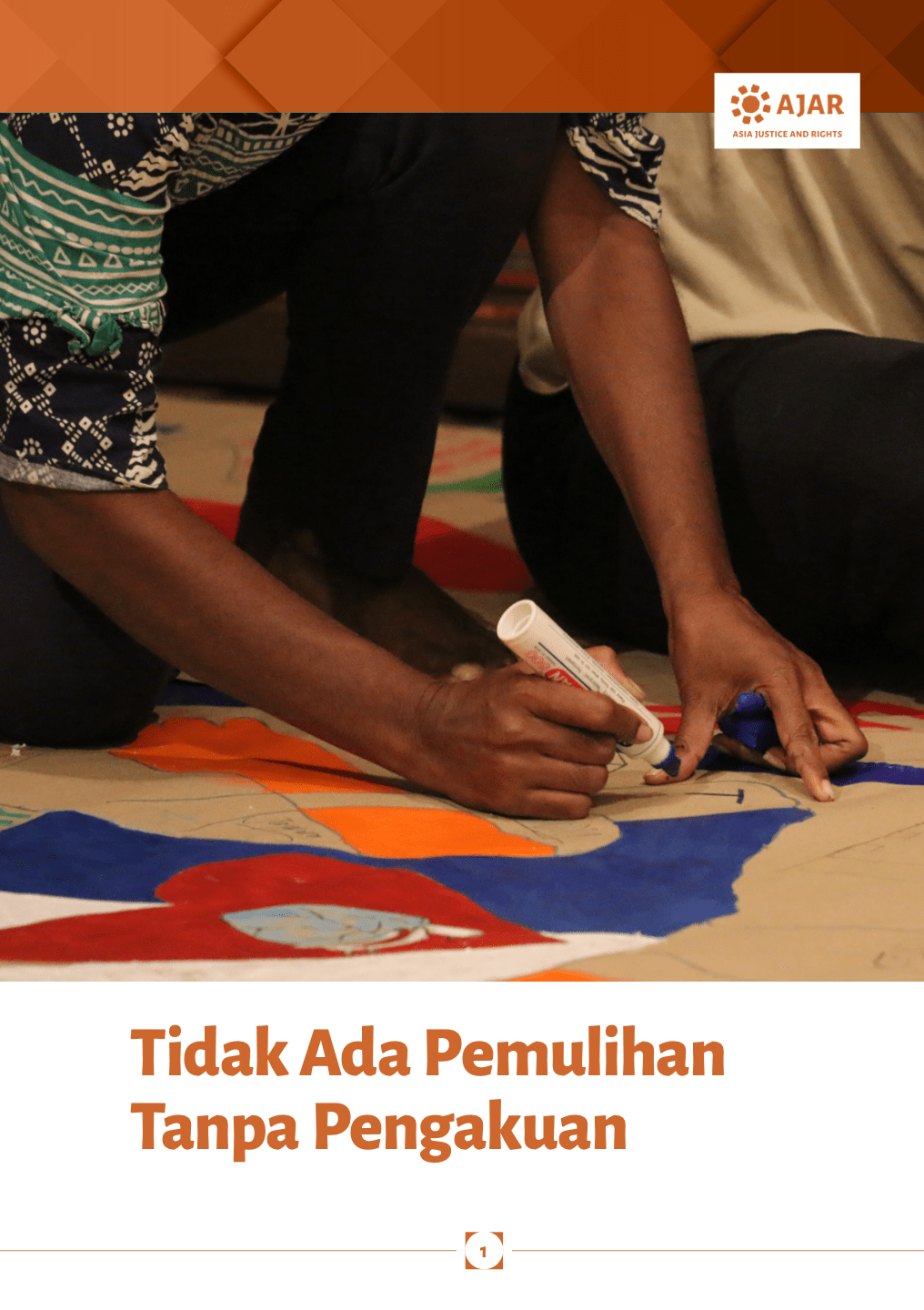AJAR wrote this paper based on reflections from 18 survivors of human rights violations across Indonesia, including Aceh, Yogyakarta, Central Sulawesi, South Sulawesi, and Papua. The group, composed of 11 women and 7 men, comprises survivors of military conflicts, state-sponsored violence, and crimes against humanity of 1965-1966. They gathered over four days in September 2023 to share their experiences and engage in dialogue with government officials and human rights institutions.
The aim of this reflection and dialogue was to encourage the state to enhance its efforts in fulfilling survivors’ rights. Survivors used body mapping to visually represent their experiences and discussed the impact of violence with state representatives. They called for legal certainty, the search for disappeared persons, historical clarification, data collection, accountability for perpetrators, memorial construction, and the cessation of ongoing violence. During the dialogue, government officials outlined current initiatives and the discussed the challenges they faced in fully addressing survivors’ needs.
Here, AJAR aims to capture the voices of survivors by documenting their experiences of violence, reflections on their current situation, as well as presenting recommendations resulting from this joint process. Through the use of creative, cross-generational and cross-case participatory methods, the process of in-depth reflection has generated valuable recommendations. Of course, the presence and perspectives of 18 survivors of violence cannot represent the voices of thousands others who still need to be involved in the future.
